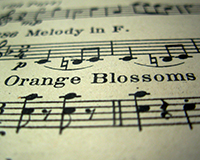 Do you ever find yourself resisting meditation? Perhaps you've resolved to meditate regularly either because you think it's good for you, or you've enjoyed meditating and what it does for you. And yet, for some reason, you find yourself resisting meditation. Georgina asked about this in a comment:
Do you ever find yourself resisting meditation? Perhaps you've resolved to meditate regularly either because you think it's good for you, or you've enjoyed meditating and what it does for you. And yet, for some reason, you find yourself resisting meditation. Georgina asked about this in a comment:
"I really love meditation and your podcasts have greatly assisted me and changed my life. But even though I love meditation and I know it is good for me, I find myself resisting doing it almost daily… why is that? Do you have any insight on why we resist meditation? Why I find it so hard to sit for just 10 minutes a day sometimes? Is it the mind not wanting you to go away from it?"
Before I comment, I'd like to invite you to share your experience with this. Do you find you resist meditation? How do you experience that resistance? Do you have any idea why you resist?
I know many people struggle with this. As I wrote to Georgina, the best thing is to investigate for yourself why you resist. It can help you get in touch with what the resistance is all about and lead to valuable insights. Often when we become conscious of the feelings and beliefs that underlie our behavior, we can find ways to make changes.
I suspect that the reason for the resistance may be different for different people, but a couple of possibilities come to mind. It may simply be the momentum in our busy lives that keeps us moving at fast speed, as well as our culture which is telling us to do, do, do.
Our culture doesn't recognize a very fundamental principle, and that is that being rested and relaxed is the most important key to being creative and productive. Getting things done is equated with putting in time. With this deeply ingrained idea, we often don't give ourselves permission to take time out for meditation. And then when we do take the time, the mind and and body are in such high gear that we feel restless. You may sit to meditate and find yourself feeling like you have to get up and go. Meditating requires that we be prepared for that and continue to experience the restlessness and let it unwind.
The resistance can also be emotional. All of our busyness keeps us from feeling things we don’t want to feel. Meditation gets us in touch with our inner experience, including our emotions. If there is something going on in our lives that troubles us or we are not comfortable with certain emotions, we may tend to avoid meditation. And yet, to be truly relaxed and present, which are both goals of meditation, we have to be able to experience our emotions.
What is your experience with this? Do you resist meditating sometimes, and do you know why?




